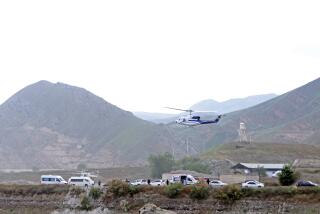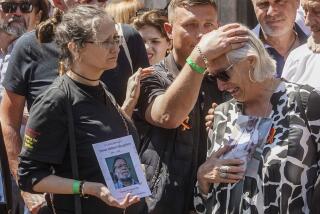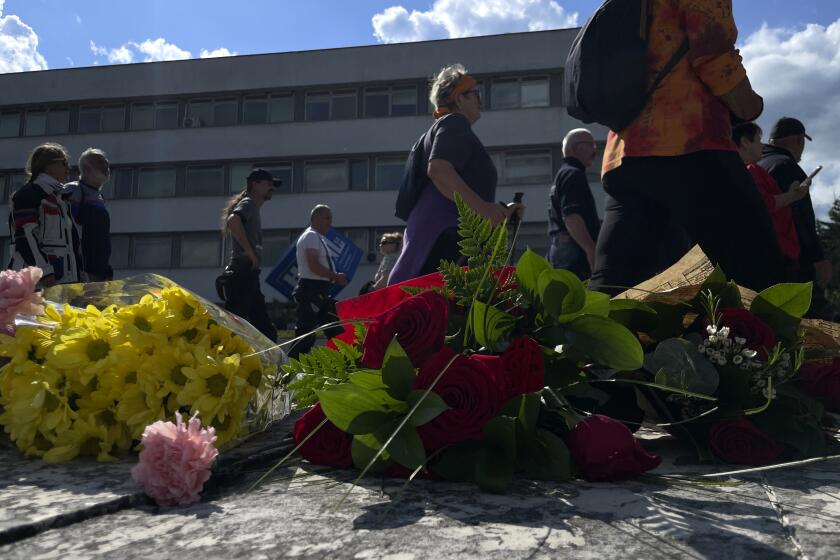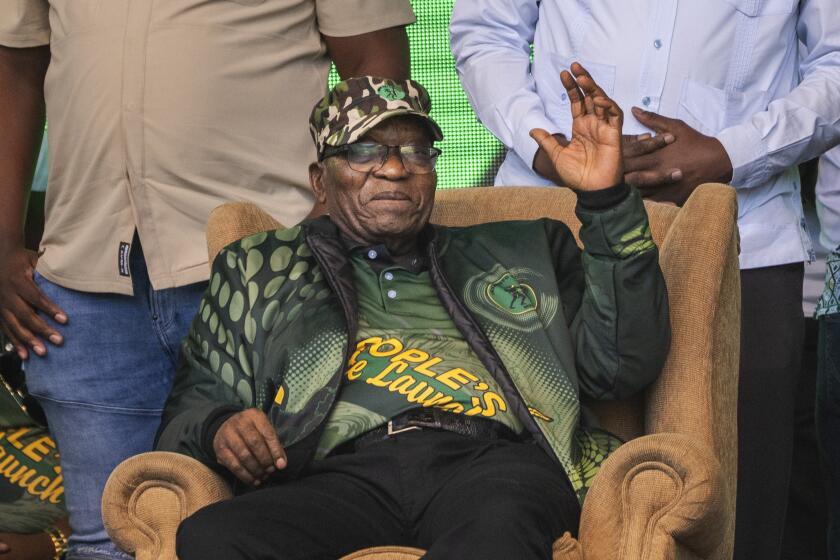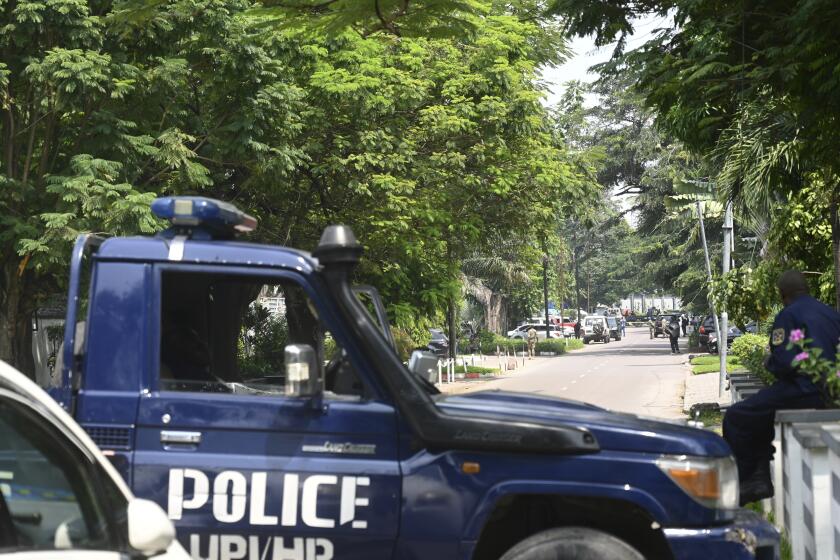Ambush Kills Two GIs Near Fallouja
A car bomb and rocket grenade attack killed two U.S. soldiers and injured five others as their convoy rumbled past the city of Fallouja on Sunday, the first such deadly attack since U.S. Marines ended 3 1/2 weeks of siege there late last month.
To the southeast, U.S. helicopters, planes and ground troops hammered insurgents in the holy cities of Kufa and Najaf, killing more than 60 religious militia fighters and civilians, according to the U.S. military and local hospitals. The attacks, including a raid on a Kufa mosque allegedly harboring insurgents and weapons, were intended to destroy units of the Al Mahdi army loyal to radical Shiite Muslim cleric Muqtada Sadr.
“We’ve been keeping the pressure on them and we’re whittling away at them,” said Army Maj. David Gercken, a spokesman for the 1st Armored Division. “A lot of these guys are misguided. We’re trying to give them the message that Sadr is not the future of Iraq.”
Meanwhile, on the diplomatic front, the U.S. and Britain were expected to introduce a resolution at the U.N. Security Council today. It would outline the next steps for international participation in Iraq.
The attack in Fallouja was the only report of American lives lost in fighting Sunday. It brings the unofficial U.S. military death toll to about 790 since the invasion in March 2003.
Fallouja was mostly quiet this month after the Marines handed responsibility for the city’s security to a force that included former officers of deposed Iraqi leader Saddam Hussein’s army. Coalition forces encircled the city in early April, launching attacks and searching for those who had killed four U.S. civilian security contractors and mutilated their bodies. On Sunday, the U.S. military gave Iraqi police a list of 25 suspects.
In Kufa, as part of “Operation Iron Saber,” armored vehicles crashed through the wooden gates of the Sahla mosque as Iraqi counter-terrorism troops swept in and traded gunfire with insurgents. Once the Iraqi force had cleared the building, U.S. troops entered and began searching for weapons. Officials said they discovered a cache of hundreds of mortar rounds, rocket grenades and launchers.
The raid, which left the mosque bloodied and bullet-pocked, was condemned by some residents who said the Americans had violated sacred ground.
Army Maj. Gen. Martin Dempsey, who commands the 1st Armored Division, said U.S. troops were taking care not to enter or damage sites holy to Shiite Muslims, even though Sadr’s fighters were using them as fighting positions.
Iraqi security forces and U.S. troops also battled insurgents at Kufa’s nearby technical college and a building known as Saddam’s Palace. In all, 32 insurgents were reported killed in the area.
In Najaf, helicopters and AC-130 gunships fired relentlessly at positions north of the city’s cemetery. Militia members frequently launch mortar rounds at the city’s police station and U.S. Army bases from the vast graveyard, thought to be a warren of tunnels and arms caches.
At local hospitals, doctors reported more than 30 people killed, saying they included insurgents and civilians.
Najaf has been a Sadr stronghold ever since his forces began their uprising in early April. On Sunday, a Sadr aide announced that the militia fighters would consider withdrawing from the holy cities if U.S. forces did the same, but the military said it would not agree to such a deal. Sadr must surrender, it said, and stand trial for the assassination of a rival cleric.
More to Read
Start your day right
Sign up for Essential California for news, features and recommendations from the L.A. Times and beyond in your inbox six days a week.
You may occasionally receive promotional content from the Los Angeles Times.
